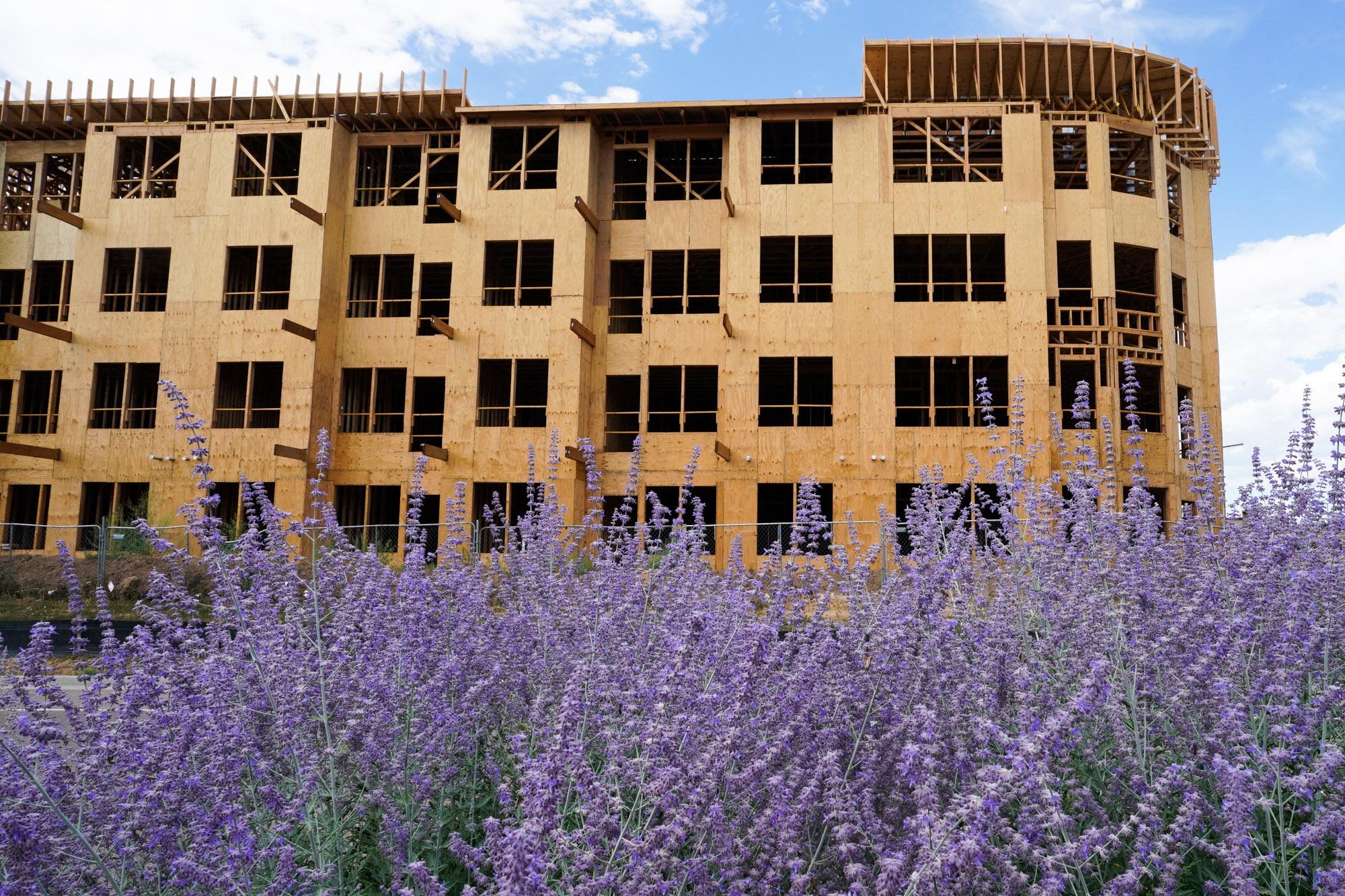
Gov. Jared Polis signed a law Wednesday that will ban cities from having “growth caps” that limit the rate of residential development, such as the one in Golden, the community of about 20,000 people west of Denver.
“Colorado is facing a housing crisis, and we must all work together to create more housing opportunities for every Colorado budget, not limit them,” Polis said in a written statement before signing the bill.
Golden has kept a tight grip on housing construction since 1995, when voters approved a growth cap. The law, which was aimed at slowing the growth of suburban sprawl, allows the city’s number of residential units to grow by only 1 percent per year.
The result is that Golden is set to make allowances for just 88 new homes this year, a policy that restricts not just suburban sprawl but also denser development.
It’s exactly the kind of ordinance that state lawmakers targeted this year. The new state law, HB23-1255, says cities may not enforce laws that “explicitly limit” population growth or the number of residential units that can be approved.
Affected cities, potentially also including Boulder and Lakewood, will have until early August to comply with the new law.
“We’ve been monitoring the legislation, but city council has not discussed anything beyond just watching the legislation. They haven’t said whether they’ll take any action,” said Carly Lorentz, deputy city manager for Golden.
Supporters argued that growth caps allow cities to unfairly duck their obligation to build housing. They say building more and denser housing will help to alleviate the shortage and allow for improvements like better transit service.
“For me, it’s about ensuring affordability via growth and density, and for my [Republican] colleagues it’s about ensuring government doesn’t interfere with private property rights,” said Democratic Sen. Julie Gonzales, a sponsor, during an earlier debate.
The bill’s sponsors also included Rep. William Lindstedt of Broomfield and Rep. Ruby Dickson of Centennial. All were Democrats — but it picked up bipartisan votes in the Capitol. Republicans like Sen. Rod Pelton said that, in this case, property rights trump local control.
“At the end of the day, if I own land, I should be able to do with it what I want. I should be able to develop it if I want,” Pelton said during a debate.
The change is raising alarm for some local officials who fear they’ll lose control of growth.
In Lakewood, a growth law limits certain residential development, though it contains exemptions for “blighted” areas and affordable housing. Elected leaders and staff are still looking at the effects of the bill, said spokesperson Stacie Oulton. City council will discuss their options at a meeting in July, she added.
Councilwoman Anita Springsteen said that dense redevelopment tore apart her home neighborhood in northwest Denver, resulting in gentrification and displacement. She said that experience motivated her to support Lakewood’s “strategic growth initiative,” passed by voters in 2019.
“Do we have to completely give up our standard of life and our enjoyment of nature and what we all have in our mind as a good place to live?” she asked in an earlier interview.
The new law still allows cities to pass “temporary” anti-growth laws in certain cases.
That includes when there’s been a disaster emergency; when the city is amending its land-use plans and laws; and when it’s necessary because of infrastructure and water concerns. Those temporary exemptions can only be in effect for up to two years out of a five-year period.
Boulder also has a growth cap, but city staff said it is now obsolete.
“The cap was originally intended to manage new single-family residential development that put pressure on the open space boundary,” wrote Kristofer Johnson, the city’s comprehensive planning manager, in an email to CPR News. “Most residential development activity in Boulder these days is higher density […] which is exempt from the growth cap.”
A city spokesman, Carl Castillo, said the city council will probably abolish the growth limit at some point, but it’s not an “urgent need” because it no longer has any effect.
Indeed, it’s hard to say how much of a practical effect the new state ban will have. Even if a city does not have an explicit cap on growth, it still can slow development with zoning rules that limit the size and density of housing. An effort to override those local zoning rules failed in the legislature.








